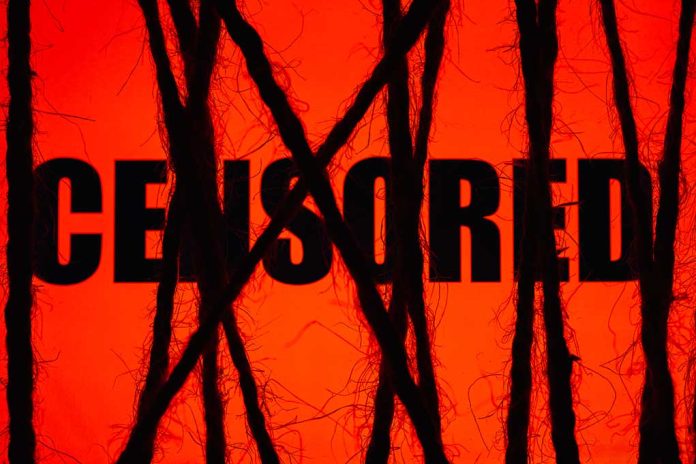
Former President Donald Trump unveils a bold plan to restore free speech in America, challenging what he sees as widespread censorship.
At a Glance
- Trump announces policy initiative to dismantle censorship and restore free speech.
- Proposes revising Section 230 to ensure digital platform neutrality.
- Plans to sign executive order preventing federal agencies from censoring lawful speech.
- Calls for breaking up the “censorship industry” and stopping related federal funding.
- Advocates for a digital Bill of Rights to protect user freedoms online.
Trump’s Free Speech Policy Initiative
Former President Donald J. Trump has unveiled a comprehensive plan aimed at bolstering free speech in the United States. The initiative, part of his “Agenda47” campaign platform, addresses what Trump and his supporters perceive as an infringement on First Amendment rights, particularly focusing on the role of technology companies in moderating online content.
This alone puts DJT in company with the greatest U.S. presidents since Lincoln. The globalist project has laid siege to democracy and freedom across the globe. The USA is the final redoubt. President Trump just launched freedom’s counterattack. https://t.co/2brXEjTByg
— Robert F. Kennedy Jr (@RobertKennedyJr) November 9, 2024
Central to Trump’s proposal is the revision of Section 230 of the Communications Decency Act, which currently provides immunity to online platforms for user-generated content. Trump’s plan seeks to ensure that these platforms uphold commitments to neutrality and refrain from arbitrary censorship.
Key Elements of the Initiative
Trump’s free speech policy initiative includes several bold proposals. He plans to sign an executive order preventing federal agencies from colluding to censor lawful speech and ban federal funds from being used to label domestic speech as misinformation. The former president also intends to identify and fire federal bureaucrats involved in censorship activities.
“If we don’t have FREE SPEECH, then we just don’t have a FREE COUNTRY.” – President Donald J. Trump
Additionally, Trump proposes ordering the Department of Justice to investigate and prosecute parties involved in online censorship. He aims to break up what he terms the “censorship industry” and stop federal funding for related non-profits and academic programs. The plan also includes implementing a 7-year cooling-off period for former intelligence officials before they can join companies with access to U.S. user data.
Digital Bill of Rights
A significant aspect of Trump’s initiative is the proposal for a digital Bill of Rights. This would include digital due process and user rights regarding content moderation, aiming to protect individual freedoms in the online space. The former president frames this fight for free speech as crucial for America’s survival and Western civilization.
“That’s why today, I am announcing my plan to shatter the left-wing censorship regime, and to reclaim the right to Free Speech for all Americans.” – President Donald J. Trump
Trump’s initiative has sparked intense debate about the balance between free speech and responsible content moderation. Supporters view it as a necessary step to protect First Amendment rights, while critics argue it could lead to the spread of misinformation and harmful content online. As discussions continue, the implications of these proposals could potentially redefine the boundaries and responsibilities associated with free speech in today’s interconnected digital world.
Commitment to Dismantling Censorship
Trump has pledged to dismantle what he describes as the current system of censorship if re-elected. He accuses a group of “Deep State bureaucrats, Silicon Valley companies, left-wing activists, and corporate media” of conspiring to silence Americans. This stance resonates with his base, who have long expressed concerns about perceived bias in social media and news outlets.
“The fight for Free Speech is a matter of victory or death for America—and for the survival of Western Civilization itself.” – President Donald J. Trump
Trump’s free speech policy initiative is likely to be a central theme in his second term. It underscores the ongoing national debate about the role of government, tech companies, and individuals in shaping the landscape of public discourse in the digital age. Whether these proposals will gain traction and how they might be implemented remains to be seen, but they have certainly reignited discussions about the future of free speech in America.







